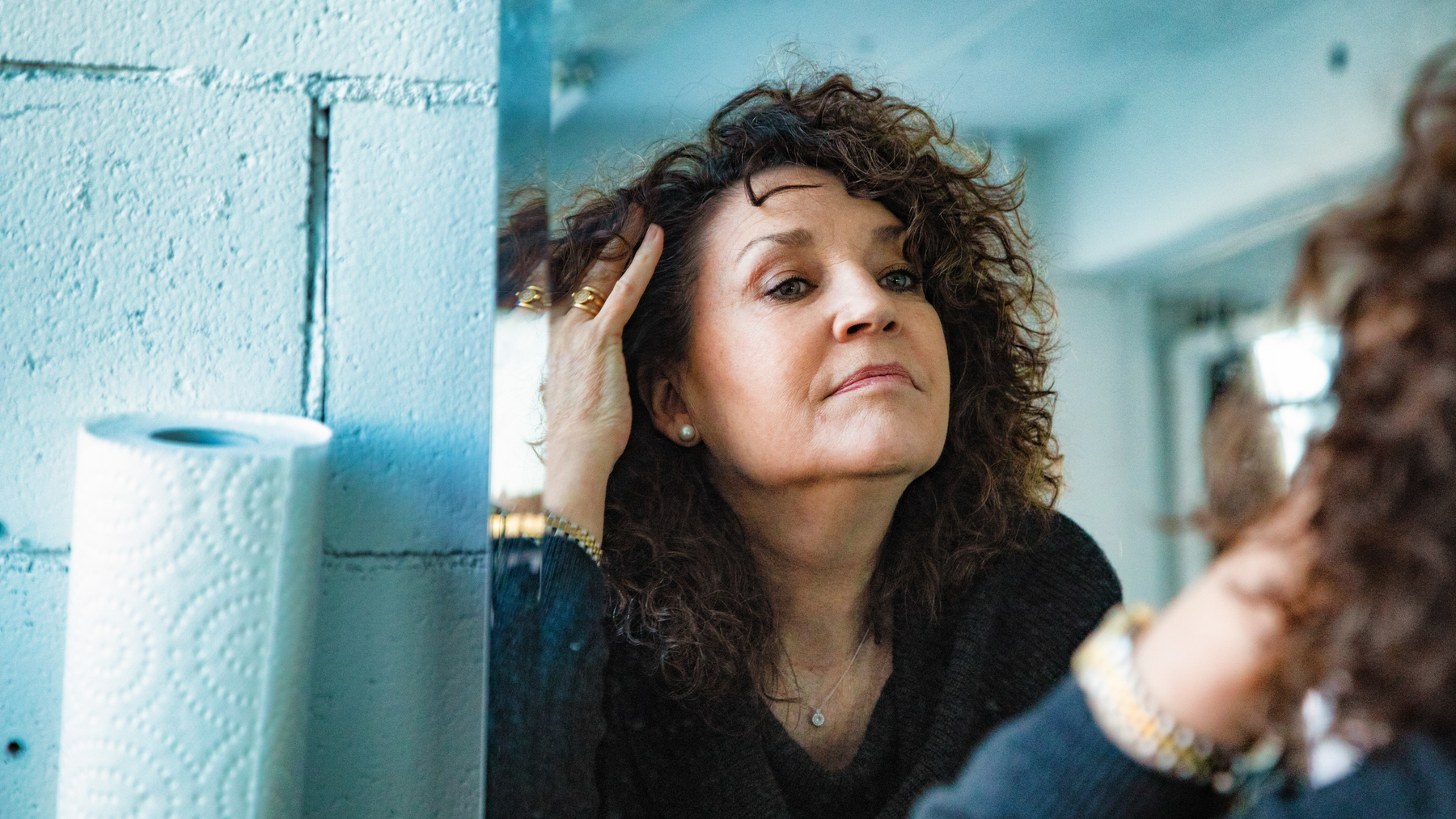Does menopause cause hair loss?
Does menopause cause hair loss? We spoke to an expert in the field to find out how menopause affects hair growth for women


Does menopause cause hair loss? Hair loss is quite often associated with men more than women but it can affect both genders throughout life. Many women may start to notice changes happening to their hair as they get older, such as loss of mass and thickness or just a change in texture, and this could be down to menopause.
While some of the best menopause supplements include essential nutrients that can aid hair growth, such as vitamin A and zinc, it’s a good idea to understand exactly how hair loss can happen from menopause and ways to manage this. Most importantly, it shouldn’t be something you have to be embarrassed by and it’s helpful to remember you aren’t on your own. According to research published in the Menopause journal, more than half of women over 50 will experience hair thinning but early detection can be beneficial for women.
We know how important hair is to an individual and this is highlighted in the study above, which found 60% of the postmenopausal women had low self-esteem and this increased with hair loss. This is why we spoke to UK based doctor and leading menopause specialist, Dr Louise Newson, to debunk the important questions surrounding menopause and hair loss and ways to manage this if it happens to you.
Does menopause cause hair loss?
The answer to this question is yes, but it won’t affect everyone.
Dr Newson explains that oestrogen is an important hormone for improving hair growth and keeping the hair follicles healthy. So when levels of this hormone reduce during perimenopause (the transitional period before menopause) and during menopause, this can often lead to hair loss. She also mentions that hair can change in texture and many women will find their hair feels drier and coarser.
How does menopause cause hair loss?
Dr Newson says, “Hair is prone to aging and in women, hair follicles tend to shrink due to low oestrogen levels and so hair becomes finer. The total number of hair follicles also reduces and this can happen over the scalp and body.”
Perhaps you aren’t experiencing menopause yet but are aware of some hair thinning? Newson explains that some women have low iron levels as a result of heavy periods during perimenopause and this too can lead to hair loss. There are easy ways to increase your iron intake and this doesn’t mean you need to eat lots of red meat if you don’t want to. Red meat can be bad for your cholesterol levels (this can already increase from menopause), however, foods like beans, dark green leafy vegetables and dried fruit can all pack in iron into your diet. Plenty of these foods are included in various recipes featured in some of the best vegan cookbooks.
Start your week with achievable workout ideas, health tips and wellbeing advice in your inbox.
Will the hair grow back?
There are oestrogen receptors in every cell in the body, including in the hair and scalp. Replacing the low oestrogen by taking body identical Hormone Replacement Therapy (HRT) can be beneficial for hair growth and slow down or even stop hair loss in some women, Dr Newson added.
“The oestrogen is usually given as a patch, gel, or spray and women usually notice that the texture of their hair improves and their hair becomes thicker after a few weeks and months”, she adds.
The UK health care provider, NHS, states that HRT is a treatment available to help relieve symptoms of menopause by replacing hormones that are at a lower level as you approach menopause. However, it's best advised you consult your doctor first.
How can you take care of your hair during menopause?
Small daily habits can also make a difference when it comes to protecting your hair. Dr Newson says it's best to use a gentle shampoo and good quality conditioner. Women should also avoid intense drying as it can make their hair more prone to splitting.
“Wearing a hat on sunny days will protect the scalp and hair from UV damage. Colouring hair is not usually a problem. Eating a healthy, balanced diet will help, as will managing the cause of stress, and focussing on your wellbeing,” she points out. If you need more expert information about perimenopause and menopause Dr Newson founded the balance app that can help you track symptoms and create personalized health reports.
You can find out more about Menopause and anxiety: causes and how to treat it or we can answer your queries about does menopause make you tired?
Jessica is an experienced fitness writer with a passion for running. Her career in journalism began in local news and she holds a Masters in journalism. Jessica has previously written for Runners World, penning news and features on fitness, sportswear and nutrition.
When she isn't writing up news and features for Fit&Well covering topics ranging from muscle building, to yoga, to female health and so on, she will be outdoors somewhere, testing out the latest fitness equipment and accessories to help others find top products for their own fitness journeys. Her testing pairs up nicely with her love for running. She recently branched out to running 10Ks and is trying to improve her time before moving on to larger races. Jessica also enjoys building on her strength in the gym and is a believer in health and wellness beginning in the kitchen. She shares all of this on her running Instagram account @jessrunshere which she uses for accountability and for connecting with like-minded fitness lovers.
